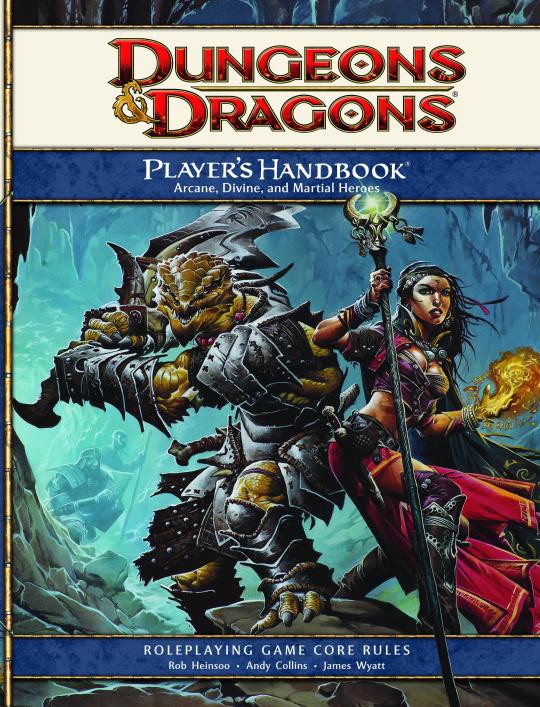 |
| The most popular |
 |
| Ooh! Star Wars! |
 |
| The close runner-up |
Now, each, of these choices (whatever they wind up being) are usually perfectly fine. I mean, can a Star Wars game be bad? But remember Rule 4: play to the system's strength. Each gaming system has it's own set of strengths and foci that make it a completely different creature than the next system. So how do you find a good fit?
- Write down a one sentence elevator pitch. This is not difficult at all! Make sure to reference a rough setting and key activities that the players will be doing. For instance, let's say I want a medieval game with a lot of intrigue and supernatural stuff going on. WRITE THAT DOWN.
- Brainstorm what actions will make that pitch happen. For an intrigue heavy game that means arguments, schemes, and the occasional tense fight. You'll need a pretty flexible rules system for that. If, however, you wanted a more combat-heavy game with arguments and scheming being less the point, you'll want something more focused on fights and blood instead.
- Determine how rules-heavy you'd like the game to be. This is an important step: is everyone fine with wrapping their heads around something that's a bit heavier rules-wise, or do y'all not wanna expend that effort? Either answer is perfectly fine, I guarantee there's a game for it out there somewhere. You just have to be clear.
- Go online and ask for help. Well, if you're reading this blog you've obviously already got that somewhat covered. Ask here on the blog and I'll see what I can do. Or head over to RPG.net or another gaming site and ask for help there. Folks are generally quite friendly and will help you with whatever you need. Give them your elevator pitch and they'll generally be able to find a product that'll work for you.
- Check out the suggestions. Read reviews for the games people mention or that you find. Do not buy blindly; RPG books can be expensive! And while it's possible to get refunds it's still a gigantic pain to have to return the book. I'll be putting up my own reviews for games I've played, so there's a resource that'll be developing over here, but check out multiple reviews anyway. One review source is going to have certain biases and such and will never be able to be totally up front with you.
I will always recommend buying hardcopy. PDFs are nice if you need a quick reference, but nothing works as well as an actual book on your table for everyone's convenience. And, of course, the last and most important rule is to make sure your players actually want to play that particular game too! Sometimes the players just don't agree, and you'll have to find a new game. But at least you have a method now!
Here's a short list of what I've played. Maybe it'll help you shorten your search time:
- Longer epics (20+ sessions): Burning Wheel, Burning Empires
- Short games (1-10 sessions): Tenra Bansho Zero, Mouse Guard, Torchbearer, and Misspent Youth
- Action-packed: Dungeons and Dragons 4th Edition, Riddle of Steel, Dungeon World, and Tenra Bansho Zero
- Dungeon crawls: Torchbearer, Basic Dungeons and Dragons, Numenera
- Players vs. GM: Burning Empires, Misspent Youth, and Marvel Heroic
- Intrigue: Burning Wheel, Burning Empires, Misspent Youth
Picking a game to play can seem like a daunting task, but as long as you're judicious you'll get the game you want.
I would humbly offer a #6, actually: "Plan for the Long Haul". Unless a game is going for $10-25, you don't want to get just one play out of it. You REALLY don't want to get a mere one-shot out of it. Not if you're new to RPGs, anyhow. (I make excuses for myself, because I'm more interested in research. :P )
ReplyDeleteThe first RPG you get should, ideally, be one that can sustain gameplay for some time. It should be somewhat flexible in terms of the types of stories you can tell. This lets it be a reliable game that you can fall back on when you branch out into other stuff. (TBZ, for instance, or--that's the reason Pathfinder is so popular, because it's flexible and reliable.) Games like Dungeon World are great for this.
I think #1 might be less important to a lot of people as well, which is another reason why more generic systems (read: Pathfinder) are popular--they give some tone, but they don't define so much that you feel the need to pick "the right one". You can sorta experiment with them and see what clicks. At the same time, a lot of things will generally "click" with a group of newbies, and you can forgive a lot of game mismatch (and even readjust your tastes) for a game that does something really cool.
Motion approved. :)
ReplyDelete